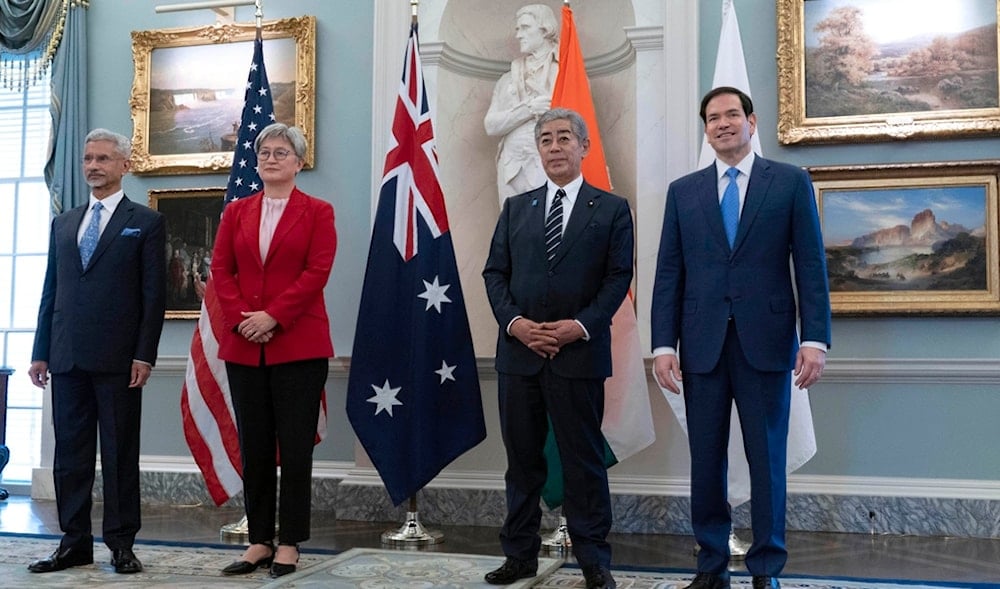Quad forms initiative to challenge China rare minerals control
The US, Japan, India, and Australia have launched the Quad Critical Minerals Initiative to reduce reliance on China’s dominant mineral exports, aiming to secure and diversify global supply chains.
-

Secretary of State Marco Rubio, right, accompanied by the Indian, Japanese, and Australian foreign ministers, stands for a group photo during the Indo-Pacific Quad meeting at the State Department in Washington on July 1, 2025. (AP)
The United States, Japan, India, and Australia have pledged to collaborate on securing a stable and diversified supply of critical minerals amid growing concerns over China's dominant position in key resources essential for new technologies.
In a joint statement, the four countries announced the formation of the Quad Critical Minerals Initiative, which aims to "collaborate on securing and diversifying" supply chains. While the statement offered limited specifics, the intent to reduce dependence on China was evident.
China has maintained a monopoly over rare earth elements and holds vast reserves of critical materials, including the majority of the world’s graphite supply used in electric vehicles.
While the US has been engaged in a trade and tariff war with China, going as far as to call on regional powers to head West rather than advance their dependence on Beijing, China has retaliated by imposing licensing requirements and export controls on rare minerals.
Read more: Trump says China will let rare earth elements flow after call with Xi
Evident aim at China
US Secretary of State Marco Rubio welcomed his Quad counterparts to Washington, signaling a pivot to Asia after months focused on Ukraine, the Middle East, and domestic issues such as migration. Rubio emphasized the importance of supply chain diversification, stating he had "personally been very focused" on achieving "real progress."
"Reliance on any one country for processing and refining critical minerals and derivative goods production exposes our industries to economic coercion, price manipulation, and supply chain disruptions," the Quad countries claimed in their joint statement.
Although China was not directly named, the message was clear. The ministers also voiced "serious concerns regarding dangerous and provocative actions" in the South China Sea and East China Sea that "threaten peace and stability in the region."
Indian Foreign Minister Subrahmanyam Jaishankar stressed the need for a "free and open Indo-Pacific," a phrase often interpreted as opposition to Chinese regional dominance. Jaishankar also urged the Quad to address regional security issues, leading to a joint condemnation of a May attack in Kashmir that killed mostly Hindu civilians. The Quad called for the perpetrators to be "brought to justice without any delay."
In a nod to Japanese priorities, the Quad condemned the DPRK for its "destabilizing launches" of missiles and reaffirmed the goal of its "complete denuclearisation."
Despite shared concerns over China, the Quad members did not mention Ukraine or Iran in their joint statement. India maintains strong ties with Russia, while both India and Japan have long-standing diplomatic relations with Iran. On that note, Trump is expected to visit India later this year for a Quad summit, as the alliance continues to evolve in response to shifting global power dynamics and resource dependencies.
Read more: China opens rare earth channel for EU in bid to calm rising tensions

 3 Min Read
3 Min Read









